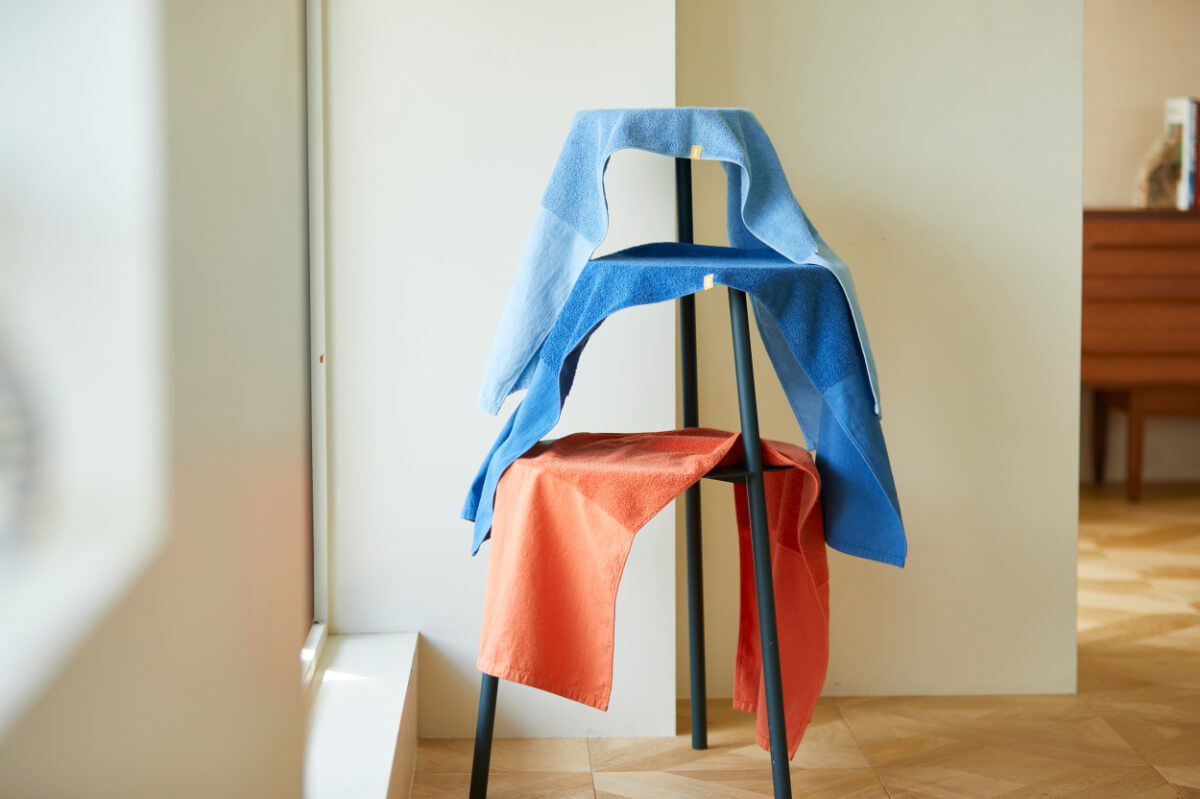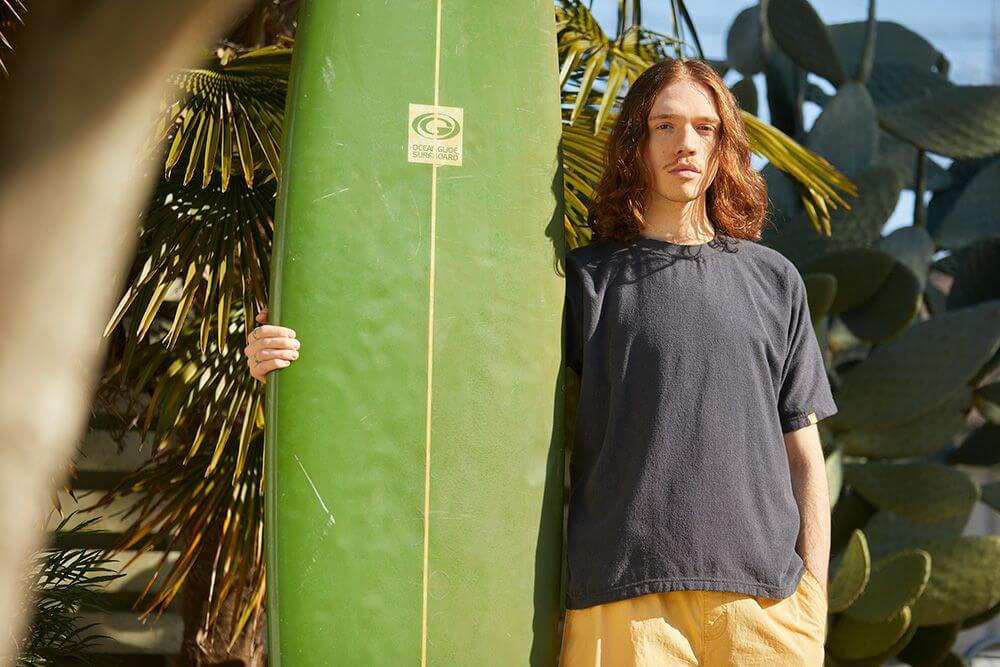1953年創業、今治タオルの専門店IKEUCHI ORGANICのスタッフが、商品のご紹介や日々の洗濯、お手入れ、メンテンナンス方法などタオルのお役立ち情報のほか、オーガニックコットンの生産現場や今治本社工場での環境に配慮した取り組みなど、ものづくりの背景をコラムでご紹介しています。
What is the Significance of Using Organic Cotton? Ricky Sato tells the story behind “Cotton Nouveau.
2023.01.07
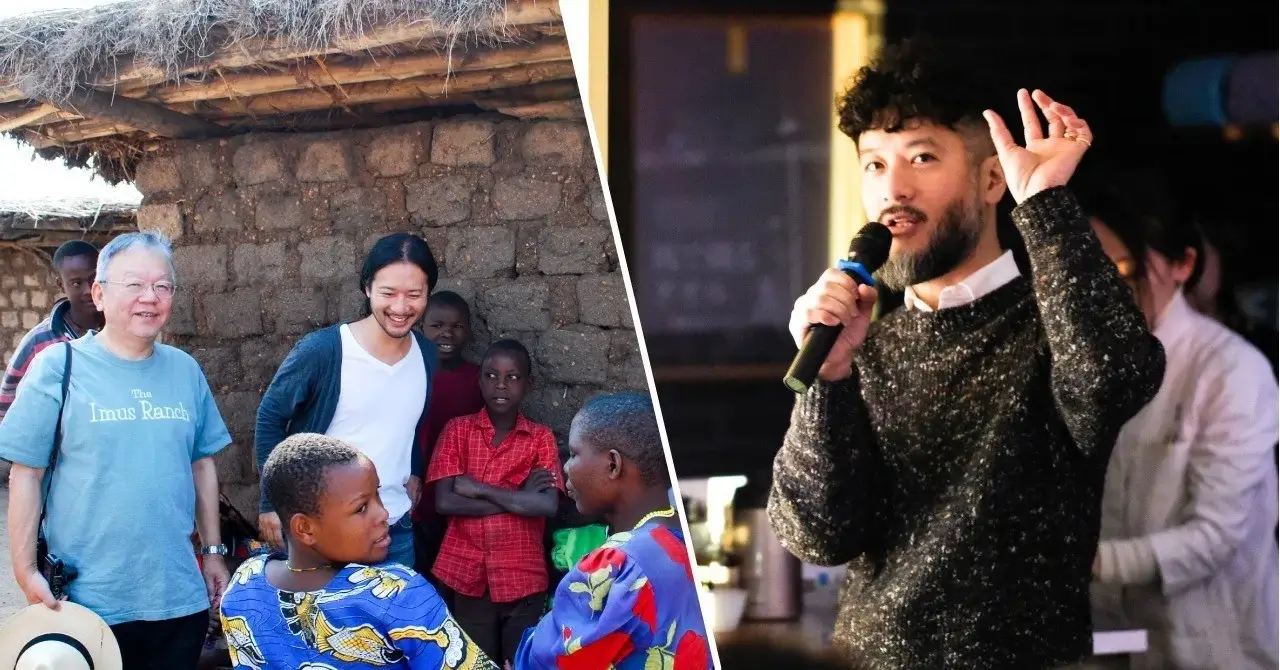
Table of Contents
Differences are natural.”
Cotton is a plant, not an industrial product.
It is impossible for its quality to be the same every year.
Differences are what makes it truly organic. Just like wine, we want to provide towels that allow you to enjoy the differences in cotton from year to year.
Cotton Nouveau” was born in 2011 out of this desire.
Ricky Sato, the creator of Cotton Nouveau and the project designer , joined IKEUCHI ORGANIC’s representative, Mr. Ikeuchi, to talk about the story behind the birth of Cotton Nouveau and his impressions from his trip to Tanzania.
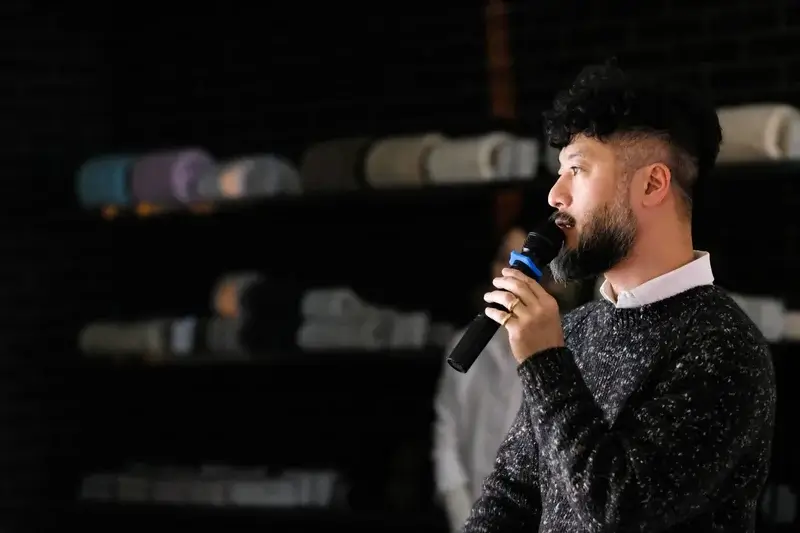
Ricky Sato was born in 1975. Born in Tokyo. Graduated from Nihon University, Faculty of Economics. Established Yello LLC in 2012. While working on interior design and exhibition space production for apparel brands, he also started product design. In addition to directing various brands, he has designed extensively across genres, including the total direction of the hotel LYURO and graphics for H&M and Tsutaya.
Cotton Nouveau began through a miraculous coincidence!
Ricky Sato: The concept of Cotton Nouveau was born when I was talking with my friend Mr. Abe (current president of IKEUCHI ORGANIC).
Organic cotton is very difficult to use for industrial products because its quality is not stable due to its organic nature, and the amount harvested each year is different. I wondered if we could take the fact that the quality varies from year to year as a positive thing.
Speaking of nouveau, you all know the Beaujolais Nouveau wine. Many people are familiar with the concept of enjoying the difference in quality every year. We decided on the name “Cotton Nouveau” in the hope that we could use organic cotton from year to year in towels as well, and make the enjoyment of the differences a part of the product’s personality.
I thought, “This is a good project! I went with Mr. Abe to make a presentation to Mr. Ikeuchi, the president of the company at that time. But it was instantly rejected (laughs).
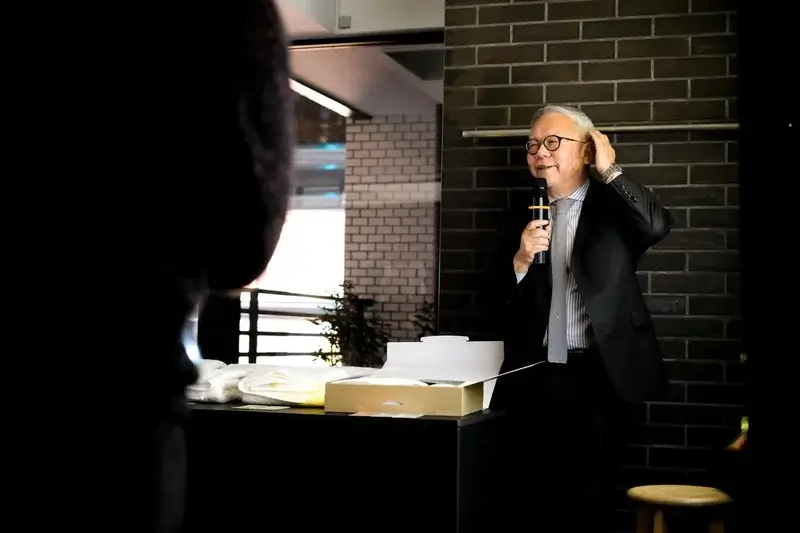
Ikeuchi: There are many reasons for rejecting the project, but to begin with, it is impossible to make yarn every year. Yarn is made by mixing various yarns, so it is basically impossible to make yarn from only the cotton harvested that year.
Ricky: I was able to make this suggestion because I am ignorant about yarn (laughs). Maybe someone who is familiar with yarn and fiber would not have come up with such a project.
Mr. Ikeuchi: But a few months after we rejected the proposal, REMEI, a company headquartered in Switzerland from which we purchase organic cotton, offered to use cotton produced in Tanzania. Until then, organic cotton from Tanzania was not distributed in Japan.
REMEI wanted Tanzanian organic cotton to be used in Japan at any cost. So they said that if Ikeuchi would use Tanzanian products, they would cooperate in producing yarns separated by the harvest year. At the same time, they also made an exceptionally accommodating arrangement for the amount of yarn to be purchased, in line with our financial situation at the time.
We thought that under these conditions it would be feasible, so we decided to carry out the Cotton Nouveau project with organic cotton from Tanzania, which we had once rejected.
Ricky: In this way, Cotton Nouveau was born from a combination of ignorance and good fortune (laughs).
What did you see in Tanzania?
Representative Ikeuchi: And after we completed our first Cotton Nouveau, we decided to travel to Tanzania to give towels to Tanzanian farmers.
Ricky: At the same time as handing over the towels, I wanted to see with my own eyes how organic cotton is grown.
Representative Ikeuchi: It is over 40 hours from Japan to Tanzania. It takes about 5 hours by car from the airport to the organic cotton fields. It takes a very long time. The road to get there looks like this, with baobab trees growing along the way.
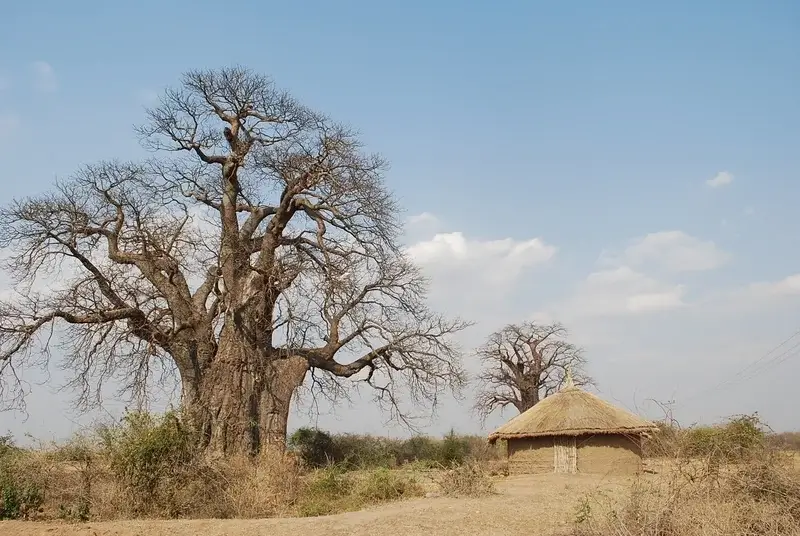
Ricky: After passing through these roads, we arrive at the training center operated by REMEI.
It is very comfortable and a great place to receive training.
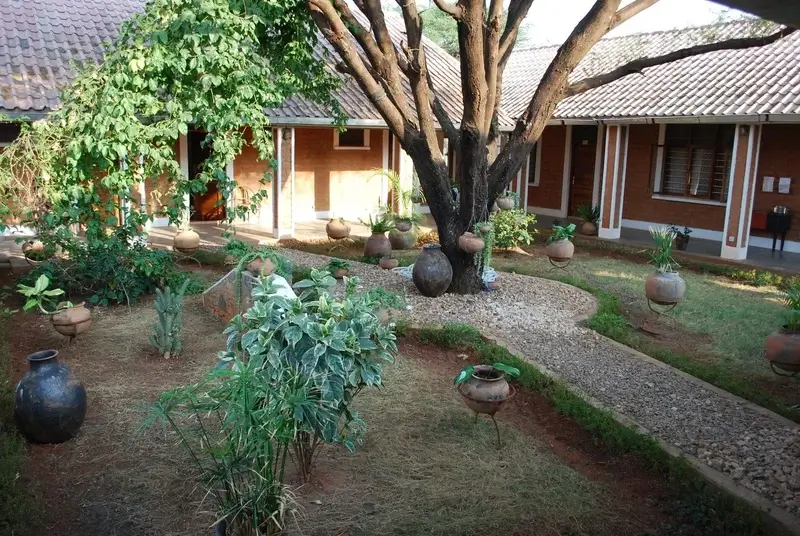
Representative Ikeuchi: After visiting the center, we went to see the organic cotton fields.
Since we were coming all the way from Japan, they left a little bit of cotton for us to pick by hand. But I gave up after picking just one stalk (laughs). (Laughs.) Cotton is short for a cotton plant, and you have to sit on your midriff to pick it. And the cottonseed has spines like roses, so if you pick it the wrong way, it will sting your hand. I thought it was very hard work.
This cotton field is about the size of four Tokyo Domes, and a large family of 25 people picks all the cotton by hand. Even with all this work, the amount of cotton is equivalent to about 2,000 bath towels. Organic cotton is a rare harvest.
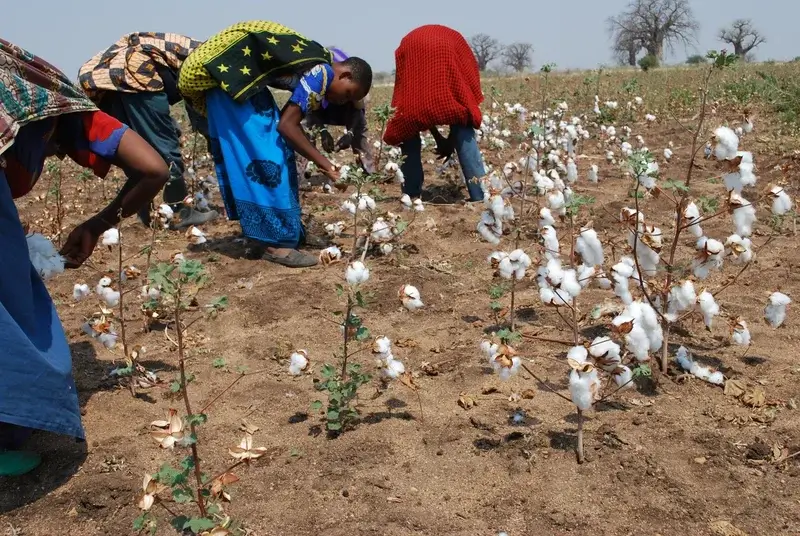
Ricky: The cotton collected and gathered in these cotton fields is pulled by oxen with awesome horns and transported to a facility managed by REMEI. The rate of payment for the amount delivered is fixed, so the harvest is measured here and a stable income can be earned.
Representative Ikeuchi: The great thing about REMEI is that no matter how good the harvest is, we have a contract to buy up to 70% of the harvest. So farmers don’t have to worry about overproducing.
Ricky: You are doing exactly what the term “fair trade” means.
Representative Ikeuchi: There is a misconception that buying at a high price is fair trade, but the important thing about fair trade is that you always buy. REMEI is very firm on this point.
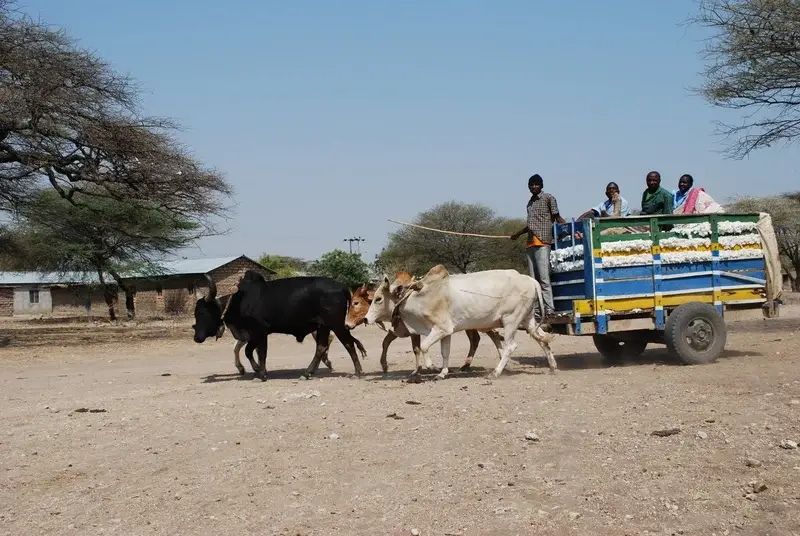
Representative Ikeuchi: Also, Tanzania is a land where you have to dig several meters out of what used to be a river to get water during the dry season, so there is an enormous difficulty with water. That is why REMEI has donated many wells. If you dig about 8 meters underground, you can get perfect fresh water. When you build one well, hundreds of people are freed from water hardship.
That is why we are also working to donate one well a year.
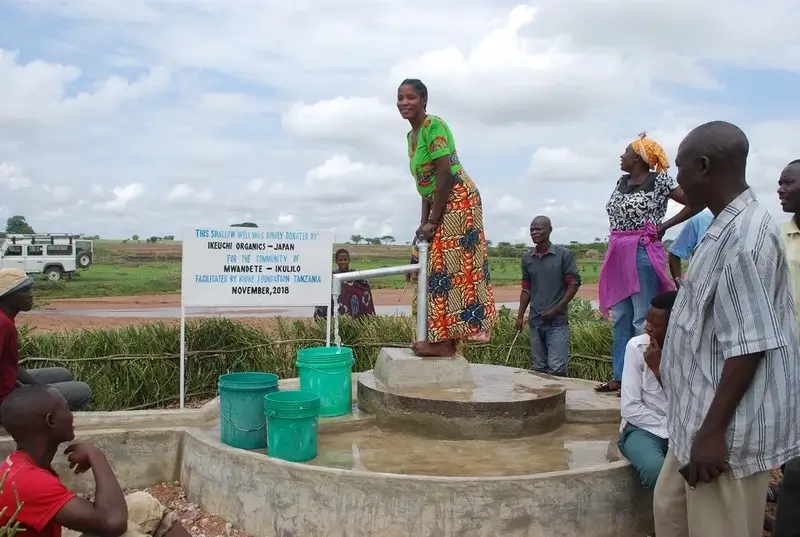
I am ashamed of myself for not knowing what to expect.
Ricky: This is how I have seen the local Tanzanian landscape with my own eyes, but what I remember most was when I visited the home of an organic cotton farmer.
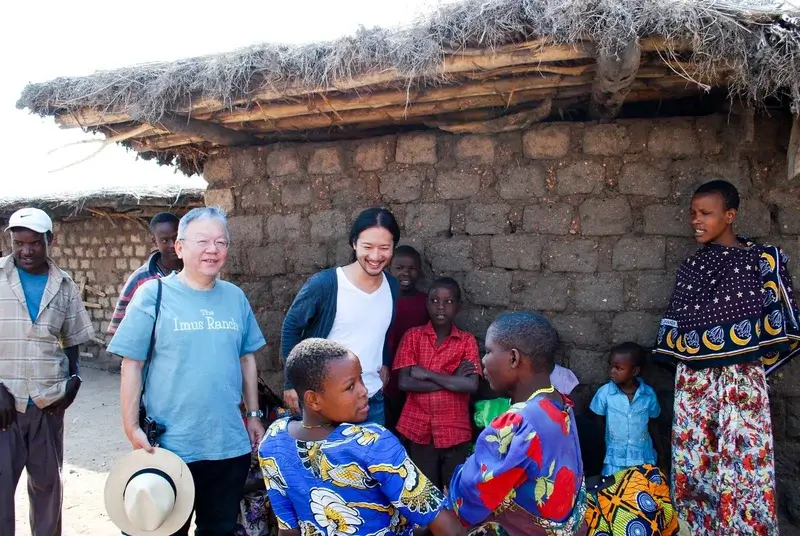
Ricky: The house was a drafty one, but that didn’t make them unhappy, they were very happy. They have a lot of children, a family of 26. We also saved money. How they buried their cash in the ground at that time because there were no banks around.
But these are the people who live like this, so they have never seen or used towels. The children looked at the towels with awe.
Moreover, Tanzania is a land that struggles with water, so there are quite a few people who do not have access to clear water. We visited them because we wanted to give them our finished cotton nouveau, but I felt very embarrassed to bring a plain white towel as a gift to people in that situation, because I felt like I was not reading the air.
Ricky: But the reason they can live happily with their large families is because of REMEI’s organic cotton project. Their lives are made possible by a single organic cotton line.
So what we should do is not to give them towels, but to use even a little bit of the organic cotton they are growing and promote organic cotton in the world. In other words, the most important thing is to continue the Cotton Nouveau project.
The most memorable thing for me was realizing this.
Thoughts on name tags and color variations
Ricky: Lastly, let me talk a little about the design. We don’t change the design basically, but we do change the color of the name tag every year. We choose a color that symbolizes the year in our own way.
For example, 2013 was the 60th anniversary of IKEUCHI ORGANIC (then Ikeuchi Towel), so we chose red to celebrate the 60th anniversary. 2014 was the year the company name was changed to IKEUCHI ORGANIC, so we chose white to signify a fresh start.
By the way, the color of next year’s name tag has already been decided. Next year is Cotton Nouveau’s 10th anniversary, so we are thinking of making it Sunrise, the rising sun. So, for 2019, one year before, I decided on a color like when the dark sky before dawn is tinted pink by the sun.
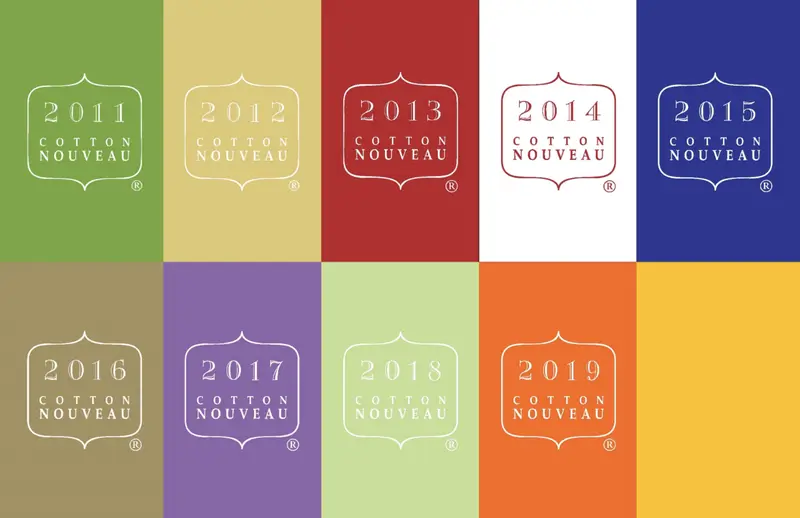
I would be happy if it could trigger a change in the way we look at things.
Ricky: Finally, as a project designer, I feel incredibly grateful to have been allowed to work with Cotton Nouveau as my life’s work.
Cotton Nouveau is based on the concept of “enjoying the difference,” and I hope to use Cotton Nouveau as an opportunity to change the way people look at various things.
Of course, I don’t think it’s good to do things sloppily and have a difference in quality. However, I hope that there will be more room in people’s hearts to enjoy the variations in the quality of B products and foods that cannot be handled because of their inconsistency.
I would be happy if Cotton Nouveau can serve as an example of how to enjoy such differences.
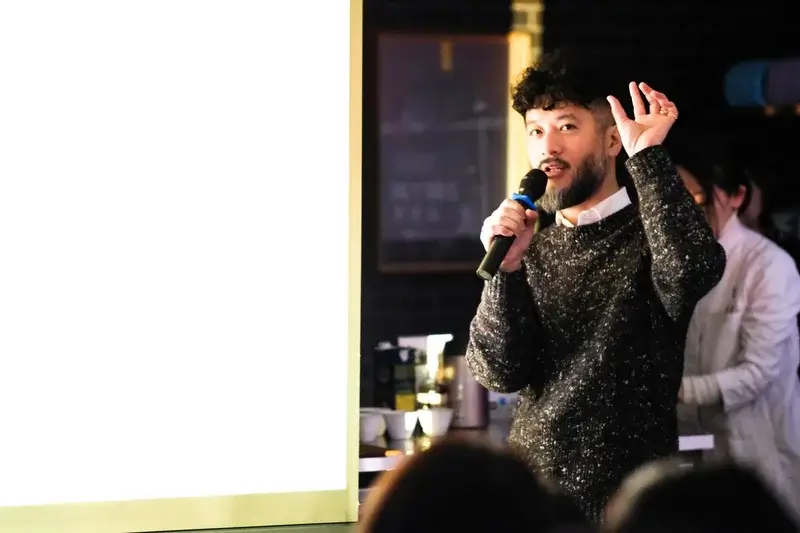
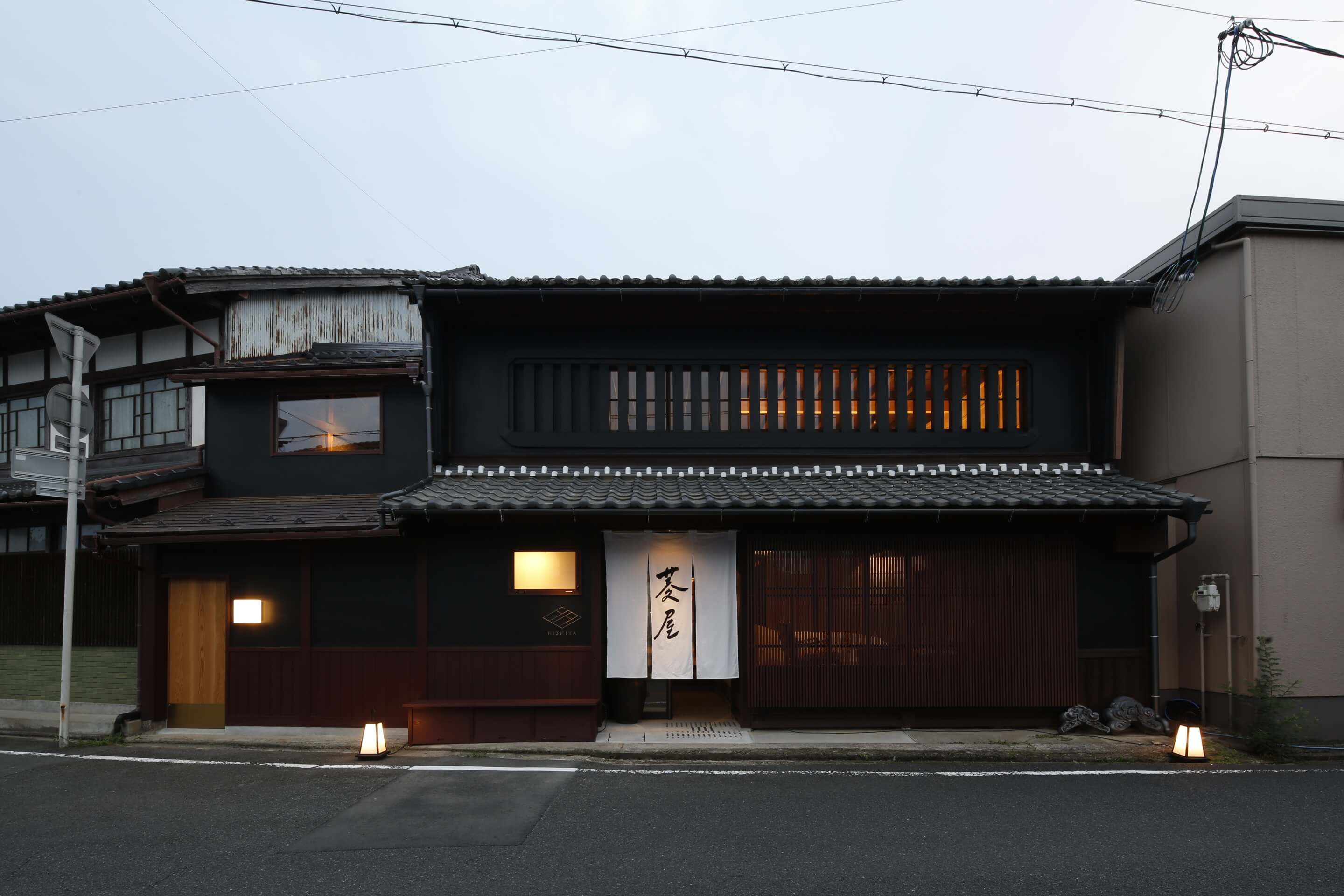
Article written by
イケウチオーガニック


